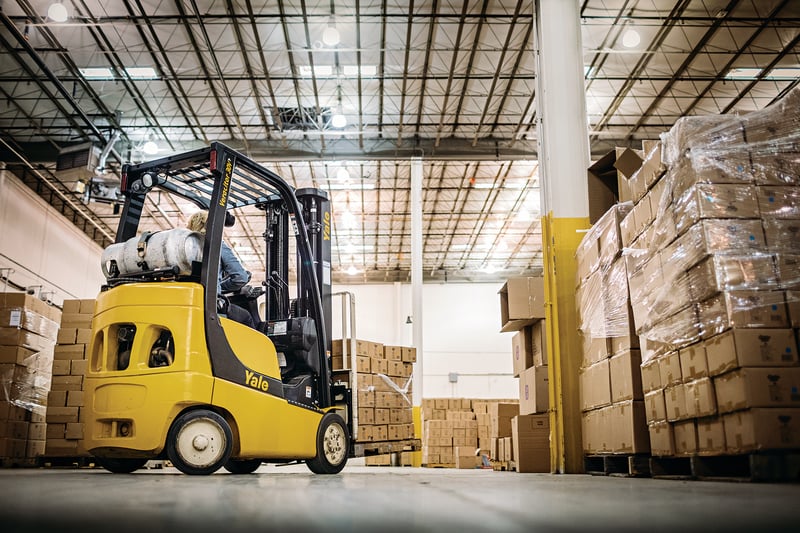
PERC encourages material handling professionals to decrease forklift emissions this Earth Day
Research reveals low-emission propane forklifts can assist with decarbonization
This Earth Day, the Propane Education & Research Council (PERC) is reminding material handling professionals that because of propane’s clean, low emissions profile, propane forklifts are a reliable and sustainable choice for both indoor and outdoor environments.
“Professionals throughout the supply chain industry are working to decrease emissions and achieve a more sustainable operation—and Earth Day brings a heightened awareness to these efforts,” said Joseph Calhoun, director of off-road business development at PERC. “For material handling professionals, this often means taking a closer look at the equipment and energy sources that are being used.”
Research from PERC reveals propane forklifts provide a smaller carbon footprint than electric forklifts under several conditions. The analysis, Fork(lifts) in the (Off) Road: Should We Ban Internal Combustion Engines for Electric? debates California Air Resources Board (CARB)’s proposed to ban on internal combustion engine (ICE) forklifts.
CARB’s mandate would ban all internal combustion engine forklifts including hybrid electric solutions, allowing only battery-powered and hydrogen fuel cell forklifts. The analysis from PERC compares the lifecycle profiles of propane and electric-powered forklifts, including carbon dioxide (CO2) and nitrogen oxide (NOx) emissions. Findings for several states show that forklifts with conventional propane engines are superior to those powered by electricity, especially when considering marginal emissions. The case for internal combustion engine forklifts becomes even stronger with hybrids and renewable fuels. In fact, nearly all propane ICE forklifts technologies emit extremely low levels of criteria pollutants compared to the regulatory standards.
PERC conducted the analysis using available Environmental Protection Agency (EPA) certification emissions data to compare the CO2 and NOx lifecycle emissions of propane and electric forklifts.
The comparative analysis presented the following scientific findings:
- A zero-emissions forklift does not exist.
- Hybrid electric forklifts, with both conventional and renewable fuels, emit less CO2 than battery-electric forklifts.
- For most states, NOx emissions from propane-powered forklifts engines can be less than half that of battery-electric forklifts powered by the electric grid.
- Nearly 314,000 ICE forklifts are operating in California alone. Replacing all ICE forklifts in the state with battery-electric forklifts would require nearly 10 GWh/day of additional charging capacity.
- Electrification as a means of decarbonization sounds attractive but as proven, is not real without complete consideration of lifecycle emissions.
“As fuels and engine technologies continue to evolve—coming together as a unified and environmentally conscious industry has never been more important,” Calhoun said. “Earth Day provides the perfect opportunity for companies throughout the supply chain industry to re-evaluate their current practices and determine where they can make a positive change. With the clean energy of propane, every day is Earth Day.”
Download PERC’s new analysis or visit www.Propane.com/Research to learn more about how to decrease forklift emissions this Earth Day.









